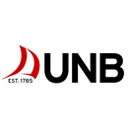UNB has among the best student-to-faculty ratios of Canada’s comprehensive universities. We offer world-class programs with a small-university experience.
Founded in 1785, UNB offers undergraduate and graduate degrees in more than 60 disciplines and continuing education in a variety of fields.
"The University of New Brunswick is committed to providing a positive learning and working environment, one in which all members of the community are respectful and respected as individuals. We strive to foster a welcoming and supportive community, where every person feels empowered to contribute".
Our mission is to create the premier university environment for our students, faculty and staff in which to learn, work and live.
We will provide an exceptional and transformative education for our students, by encouraging initiative and innovation, unlocking their creative potential. Our graduates will be prepared to make a significant difference - creating opportunities for themselves and for others.
We commit to understanding and solving the problems of today and tomorrow, serving our community and engaging with our alumni, retirees and partners around the world.
As the American Revolutionary War drew to a close, thousands of Loyalists gathered in New York City to await transportation to homes in other British colonies. Among these Loyalists were Charles Inglis, a former interim President of King's College, New York (Columbia University); Benjamin Moore, later President of Columbia; and Jonathan Odell, minister, poet and pamphleteer. These men were the visionaries of their day. In the midst of war, privation and exile, they drew up a plan for the future education of their sons in the wilderness. Recognizing that the new American nation would provide instruction only in revolutionary "Principles contrary to the British Constitution" and that the cost of an overseas education would be prohibitive, they urged the representatives of the British government to consider the "founding of a College... where Youth may receive a virtuous Education" in such things as "Religion, Literature, Loyalty, & good Morals..."
UNB began with a petition presented to Governor Thomas Carleton on Dec. 13, 1785. Headed by William Paine, the seven memorialists asked Carleton to grant a charter of incorporation for an "academy or school of liberal arts and sciences," which they maintained would result in many "public advantages and conveniences."
By 1829, the academy had become King's College and the building now known as Sir Howard Douglas Hall was officially opened.
King's College spent several tumultuous periods in conflict with members of the New Brunswick Legislature. Ostensibly, they were arguing over the issues of curriculum and religion but the real issue was probably the cost of higher education. Fortunately, King's did have its defenders, in particular, the elegant debater William Needham who, in the face of threats to burn down the college or to turn it into an agricultural school, made an impassioned speech that saved the institution from such ignominious fates. Through the efforts of Needham, Lieutenant Governor Sir Edmund Head and a few others, the Legislature was persuaded to reform rather than destroy the college. On 13 April 1859, the act creating the secular, provincial University of New Brunswick was passed.
The post-World War I era brought the first great expansion of the physical facilities of the campus. In 1920, UNB consisted of the Sir Howard Douglas Hall, the Science Building, the small Observatory, a small gymnasium and the Dominion Entomological Laboratory. By 1931, Memorial Hall, a modern Library and the Forestry and Geology Building had been added. The first university residence was a gift from Lord Beaverbrook who, growing up in New Brunswick as William Maxwell Aitken, studied law, and over the succeeding years developed an increasing interest in the welfare of the university. Other buildings brought into being through his efforts and those of his family were the Lady Beaverbrook Gymnasium, Aitken House, Ludlow Hall, for the Faculty of Law, and the Aitken Centre. In 1947, his Lordship became the University's Chancellor, to be succeeded by his son, Sir Max Aitken, in 1966 and in turn by Lady Violet Aitken, the wife of Sir Max, who served until 1993.
After World War II, returning veterans pushed registration to over 770 in 1946, almost double the number enrolled in 1941. With this increased student population came a commensurate increase in faculty and course offerings, and a surge of building activity from 1953 to 1977 that transformed the campus. The year 1964 brought three important developments: Teachers' College (the old Provincial Normal School) was relocated on the campus, to become incorporated into an enlarged Faculty of Education in 1973; St. Thomas University also relocated on campus, moving from Chatham and affiliating with UNB; and a second UNB campus was established in Saint John.
UNB reached the end of its second century as a major provincial and national institution, offering a wide range of graduate and undergraduate programs in administration, arts, computer science, education, engineering, forestry, law, nursing, physical education and science: the university enters its third century proudly treasuring its past and eagerly driving the institution into the future.






